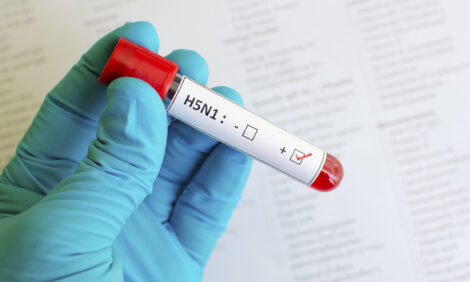



World Leaders Agree Action to Fight Antimicrobial Resistance
GLOBAL - World leaders have signalled an unprecedented level of attention to curb the spread of infections that are resistant to antimicrobial medicines, in a pledge agreed by 193 countries at the United Nations headquarters in New York yesterday.Antimicrobial resistance (AMR) happens when bacteria, viruses, parasites, and fungi develop resistance against medicines that were previously able to cure them.
For the first time, Heads of State committed to taking a broad, coordinated approach to address the root causes of AMR across multiple sectors, especially human health, animal health and agriculture. This is only the fourth time a health issue has been taken up by the UN General Assembly (the others were HIV, noncommunicable diseases, and Ebola).
The high-level meeting was convened by the President of the 71st session of the UN General Assembly, H.E. Peter Thomson.
"Antimicrobial resistance threatens the achievement of the Sustainable Development Goals and requires a global response," Mr Thomson said. "Member States have today agreed upon a strong political declaration that provides a good basis for the international community to move forward. No one country, sector or organisation can address this issue alone."
Countries reaffirmed their commitment to develop national action plans on AMR. Leaders recognised the need for stronger systems to monitor drug-resistant infections and the volume of antimicrobials used in humans, animals and crops, as well as increased international cooperation and funding.
They pledged to strengthen regulation of antimicrobials, improve knowledge and awareness, and promote best practices - as well as to foster innovative approaches using alternatives to antimicrobials and new technologies for diagnosis and vaccines.
"AMR is a problem not just in our hospitals, but on our farms and in our food, too. Agriculture must shoulder its share of responsibility, both by using antimicrobials more responsibly and by cutting down on the need to use them, through good farm hygiene," said Dr José Graziano da Silva, Director-General of the UN's Food and Agriculture Organisation.
Norway sets a strong example
Attendees at the meeting were positive about the prospects of reduction in the use of antimicrobials, Rachel Lane reported for The Cattle Site.
Knut Nesse, CEO and Chairman of the Executive Board of Nutreco, said Norway has decreased its use of the drugs by 99 per cent in the last 20 years. About 58 per cent of the decrease was in the last five years.
Social acceptance of the use of antibiotics decreased and the social pressure brought the industry together to find different ways to provide healthy animals.
Even with the decreased use of antibiotics, Norway has remained a major exporter of agriculture products, he said. Instead of treating sick animals, the focus was on preventing the animal from getting sick by providing a clean facilities and vaccinations.
"It was a great meeting [at the UN]. There was a lot of focus on global food production," Mr Nesse said.
Belen Crespo, executive director of Spanish Agency of Medicines and Medical Devices said AMR is one of the most important public threats. "We have to work very hard," she said.
She attended the UN assembly and said watching the world leaders speak, work towards a common goal and moving in the same direction was one of the best moments of her professional life. "We are all working together. This is what is important," Ms Crespo said.
She added that antibiotics cannot continue to be used in the same way.
TheCattleSite News Desk


